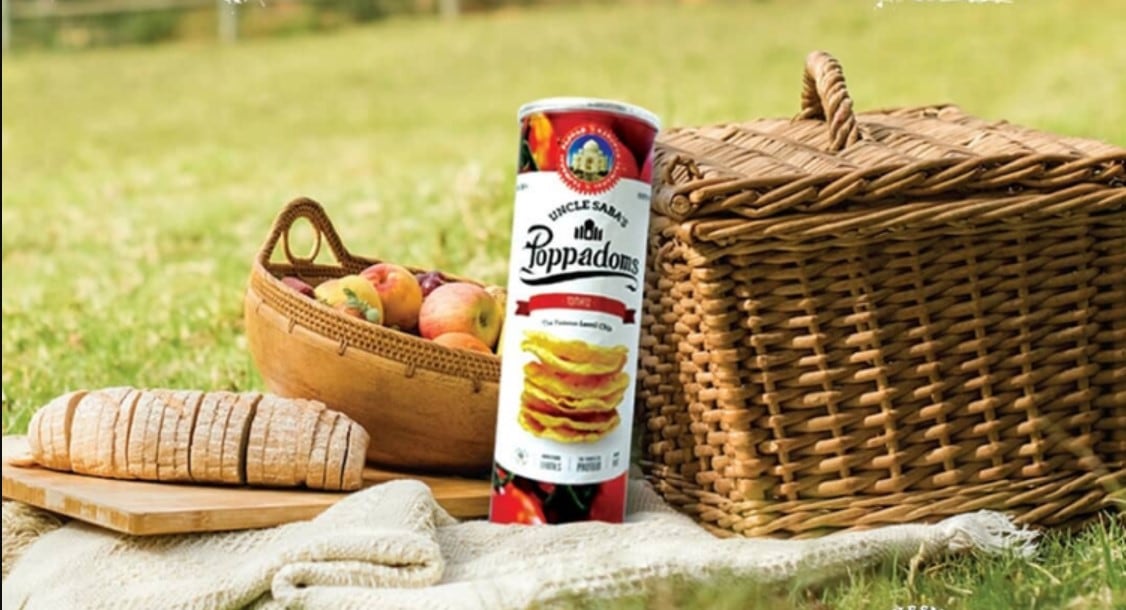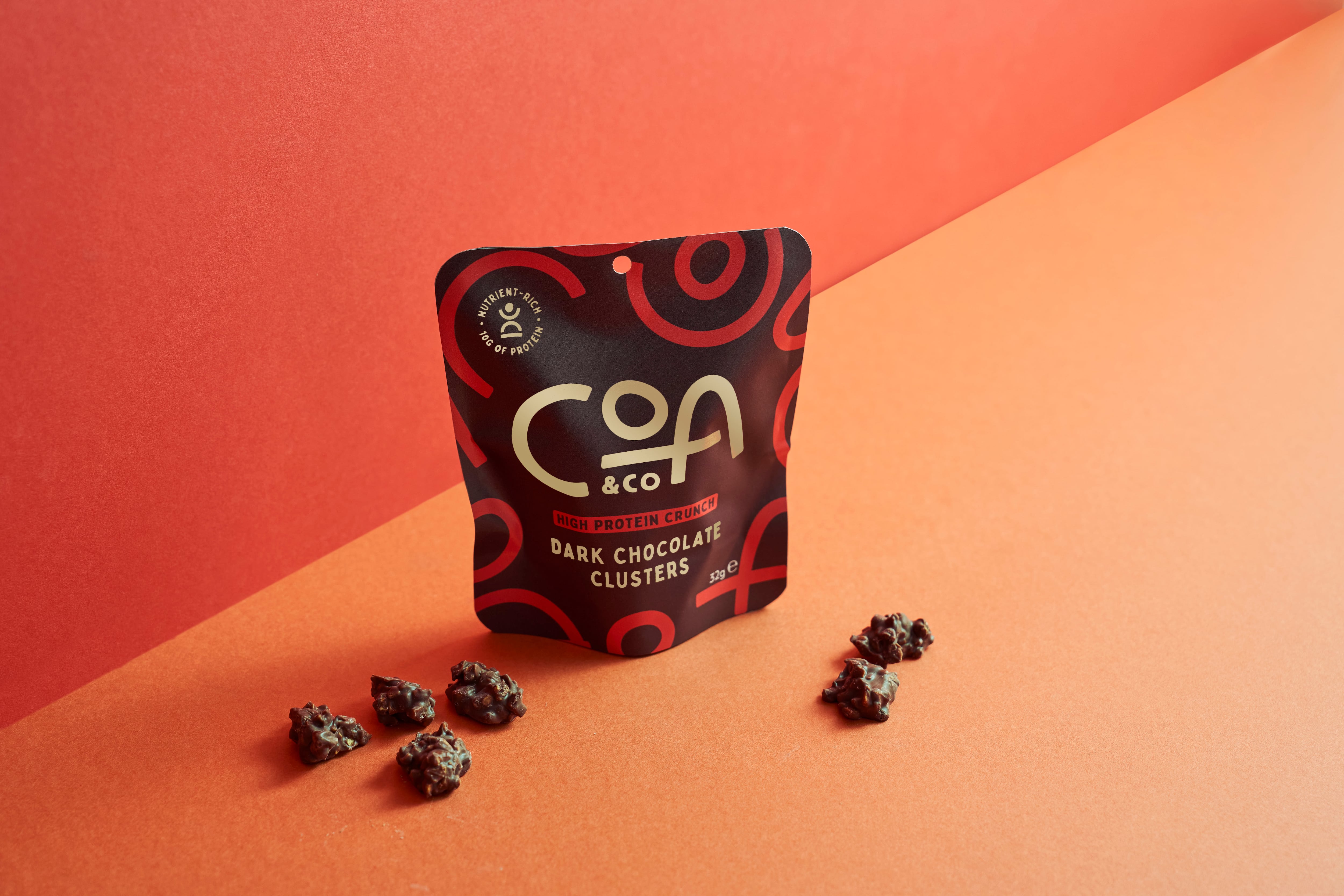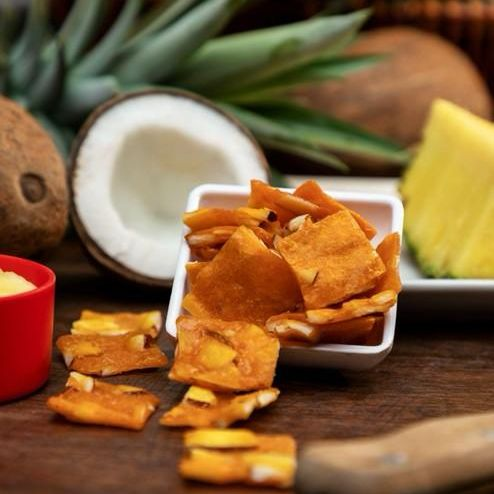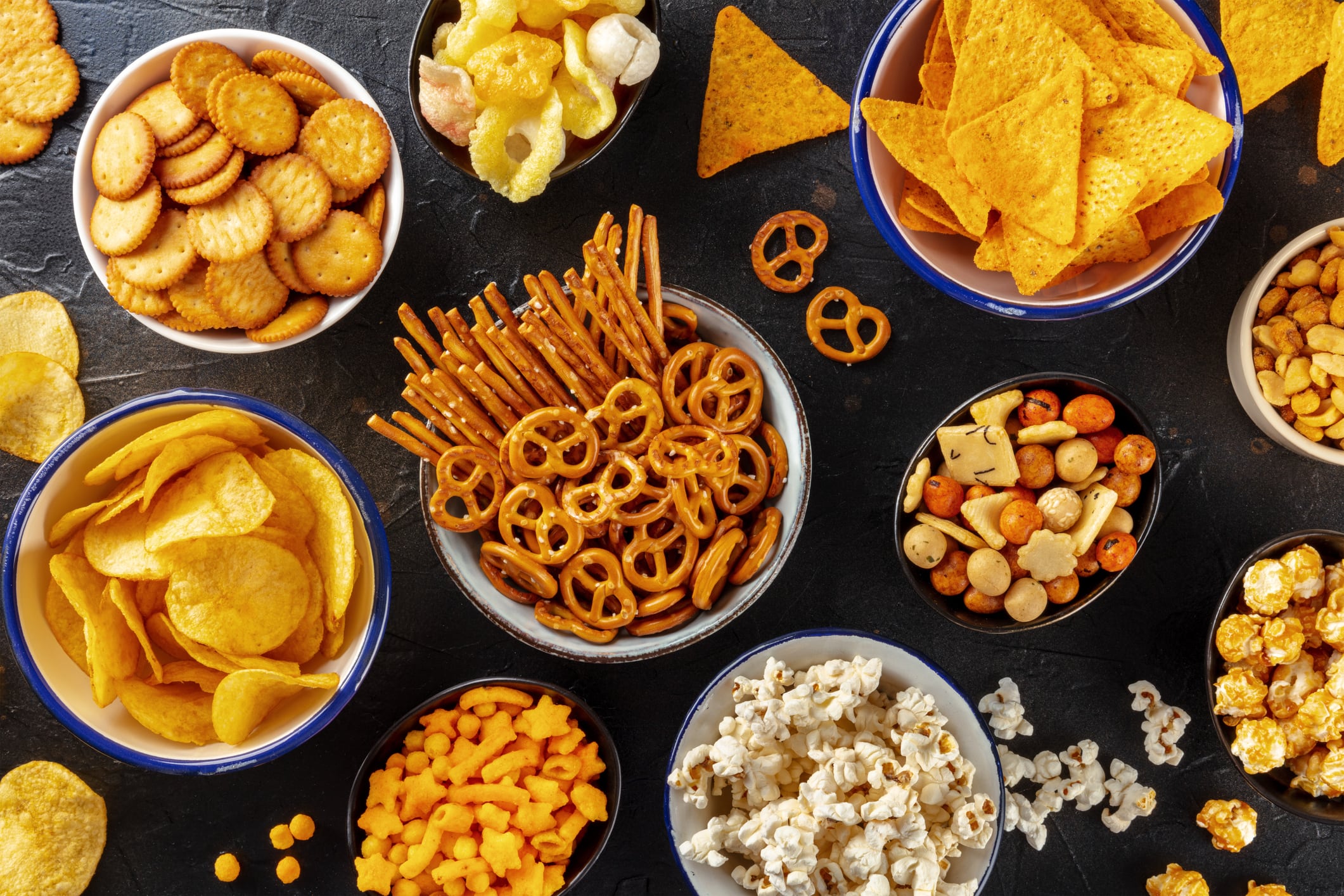The Singapore-based snack brand is known for its poppadom lentil chips but plans to launch more culturally significant snacks that continues its better-for-you focus.
Co-founder Sreenivas Saba pointed out that the term ‘better-for-you’ is relative.
“‘Better-for-you’ doesn’t mean it has to be the healthiest thing in the world – it just means it’s better compared to others in the same category, like potato chips or corn-based snacks.
“What sets our product apart is that it offers specific health benefits that other snacks can’t, simply because their raw materials don’t allow for the same nutritional claims,” explained Saba.
What are poppadoms?
Poppadoms are light and crispy disc-shaped snacks of Indian origin. They are traditionally made from seasoned dough and fried in oil. The dough may be made from various sources – such as chickpeas and tapioca.
Uncle Saba’s Poppadoms uses split urad dhal (black lentil flour), which are fried in palm oil and any excess oil is removed afterwards.
Use traditional ingredients
The brand uses chickpeas and lentils, pulses rich in protein and fibre.
Saba reasoned that traditional ingredients make good snacks because they have been part of diets for centuries – like tempeh or tortillas.
“Their taste foundation is already strong because they are made from age-old ingredients. So in a way, the R&D was done centuries ago,” said Saba. “Our job is just to adapt it for broader appeal.”
He added that consumers are increasingly interested in functional ingredients and overall health benefits.
“We’re seeing a rise in high-protein snacks. There’s also strong growth in the ‘better-for-you’ category, with more emphasis on the positive aspects of snacking,” observed Saba.
He added that this is a worldwide trend that started during COVID. However, he believes that the US is the trendsetter for the industry.
Spot global trend shifts
“Trends typically start in the US – like plant-based, which began there, moved to Europe and Australia, and is now taking root in Asia,” said Saba. “But this adoption cycle is shortening, and Asian markets are catching up faster.”
He explained that food exports allow brands to keep pace with global trends.
“Whatever is trending, we hear it directly from the market – through customers, distributors, or platforms like FoodNavigator-Asia.”
“Functional ingredients, high-protein snacks, and sustainability are now shaping global development. Poppadoms are relatively new, but they’re going mainstream,” he said.
“Sustainability is another key area. Even if a product isn’t fully sustainable, consumers at least want transparency – they want to know that brands are thinking about sustainability and including it in their future plans.”
The firm has taken steps toward sustainability, including a third-party carbon footprint audit and ingredient choices like lentils and chickpeas, which have a naturally low environmental impact.
However, Saba emphasises that taste is the number one priority for any snack brand.
Prioritise taste
Saba emphasised that taste is non-negotiable when it comes to snacks. If a product doesn’t taste good, consumers won’t return to it, no matter how nutritious it is.
“We’re offering impulse snacks. If it doesn’t taste good, no one’s going to eat it,” said Saba. “And we do look at ways to improve the nutritional profile without compromising on flavour.”
While the firm offers clean label products, it isn’t averse to using flavour enhancers if the market demands stronger taste.
“We don’t use MSG, but some of our products do include flavour enhancers if the local market prefers a stronger taste. Initially, we wanted everything to be fully natural, but we learned quickly that consumers prioritise taste. If it’s healthy too, that’s a bonus. But no one wants a snack that tastes bad just because it’s good for you. This isn’t medicine,” Saba explained.
“That said, we try to keep certain product lines completely clean-label. Our factory is nut- and gluten-free, the snacks are vegan and Halal-certified – these are important for many consumers. We strike a balance, ensuring nutrition where possible but never at the cost of taste.”
While flavour remains king, Uncle Saba’s also knows that accessibility in terms of price and availability is crucial to sustaining consumer interest globally.
Offer value for money
Uncle Saba’s Poppadoms doesn’t aim to compete directly with dominant potato chip brands. Instead, it focuses on operational efficiency, strategic pricing, and value within the emerging snack category.
“Our strategy is to offer a product that feels premium in terms of taste and health benefits but without the premium price tag,” said Saba.
“We typically sell a 4–5 ounce bag for under US$3. It’s more expensive than corn or potato snacks, but less expensive than many other alternative snack options. We aim for a small, justifiable premium while still keeping it accessible as a mass-market product, but never prohibitively priced.”
Packaging is tailored by market to streamline costs.
In the US, the brand offers its products in bags – a strategic choice aligned with market expectations.
“The US is very much a bag-snack market, and we found that cans invited unfair price comparisons with mainstream potato chips, even though the base product is different,” said Saba.
Bags are easier to produce, pack, and transport at scale, helping to reduce production time and simplify logistics.
In contrast, the original can format – inspired by how poppadoms are stacked in Indian households – was a tribute to Saba’s father’s vision. Though less common now, cans helped the brand stand out early on.
Build a brand story
Despite now selling far more bags than cans, the unique can format continues to offer strong brand recognition.
“The can helped in the beginning by giving us a very distinct positioning. Even now, although we sell 10 to 20 times more bags than cans, people instantly recognise the brand when we mention ‘poppadoms in a can’,” said Saba.
He also pointed to the brand’s deep-rooted heritage as a key differentiator.
The ‘Singapore 1919’ tagline beneath the Uncle Saba’s logo marks the year his grandfather arrived in Singapore and opened a small food shop at the site now occupied by Amara Hotel.
Since then, three generations of the family have remained in the food business.
“We see this long-standing heritage as a key differentiator. It’s a genuine story, and I think consumers appreciate that we’re staying true to who we are,” said Saba.





